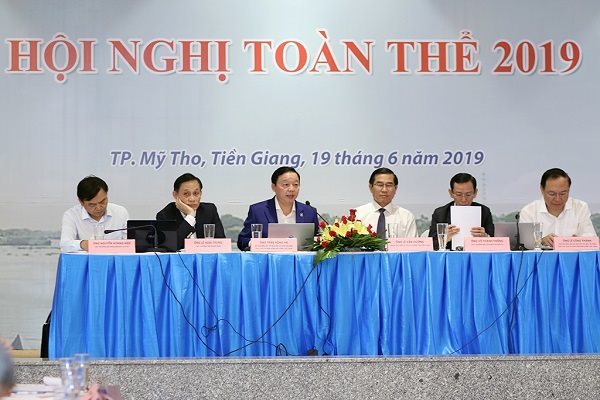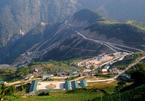The Vietnam National Mekong Commission organized the first plenary conference in 2019 on June 19 in which the issues related to the building of hydropower dams in Laos were discussed.

The first 2019 plenary conference
The consultation report on Pak Lay hydropower project provided at the conference showed that to date Laos had told the International Mekong River Commission about the construction of three hydropower works on Mekong mainstream, including Xayarbury (October 2010), Don Sahong (July 2014) and Pak Beng (December 2016).
Though there was no consensus among the members of the commission about the plans, the government of Laos still continued to implement the projects.
|
Regarding Pak Beng, the report found that the International Mekong Commission released a statement, pointing out Laos' responsibility in completing the documents of the project and improving the design. |
The construction of Xaybury started in mid-November 2012, while Don Sahong in January 2016. About 95 percent of Xaybury works have been fulfilled. It began storing water on October 3, 2018, running the first unit on October 24, 2018, while all eight electricity generation units are expected to become operational by September 2019.
As for Don Sahong, the construction of the dam has basically been completed.
Regarding Pak Beng, the report found that the International Mekong Commission released a statement, pointing out Laos' responsibility in completing the documents of the project and improving the design.
The government of Laos still has not started the construction of Pak Beng because it has not signed a contract on selling electricity to Thailand.
The Vietnam National Mekong Commission has organized many consultation meetings on Xayaburi and Don Sahong and voiced protests against the projects.
Most recently, Vietnamese experts once again showed their opposition to the Pak Lay project at a workshop held in Can Tho City on January 15.
However, Le Anh Tuan, deputy director of the Research Institute for Climate Change, said the protests did not prevent Laos from implementing its plans.
“They (Laos) are moving ahead with the fifth hydropower dam. No one knows if they will do the fifth or the sixth in the future,” Tuan said, questioning if more consultation meetings are needed.
Regarding Pak Lay project, Tuan cited a comment of the Vietnam Standing Committee of the Mekong River Commission as saying that Laos' reports about alluvium, water sources, ecosystem and aquatic creatures use unreasonable calculation methods, while the figures are inconsistent and scenarios are unclear.
Truong Hong Tien from the Vietnam Mekong Commission office said at a conference on June 19 that the direct impact of Pak Lay on Vietnam’s Mekong Delta won’t be high because it is far from the delta. However, he stressed that the total impact of all the works on the Mekong mainstream will be significant.
Kim Chi

Hydropower plants will seriously damage the Red River, scientists say
National Assembly deputies have expressed their concern about Lao Cai provincial authorities desire to build two hydropower plants on the Red River.
 The International and Vietnam Mekong Commissions have protested, but Laos is implementing its plan to build more hydropower dams on the Mekong mainstream, reported Saigon Economic Times.
The International and Vietnam Mekong Commissions have protested, but Laos is implementing its plan to build more hydropower dams on the Mekong mainstream, reported Saigon Economic Times.